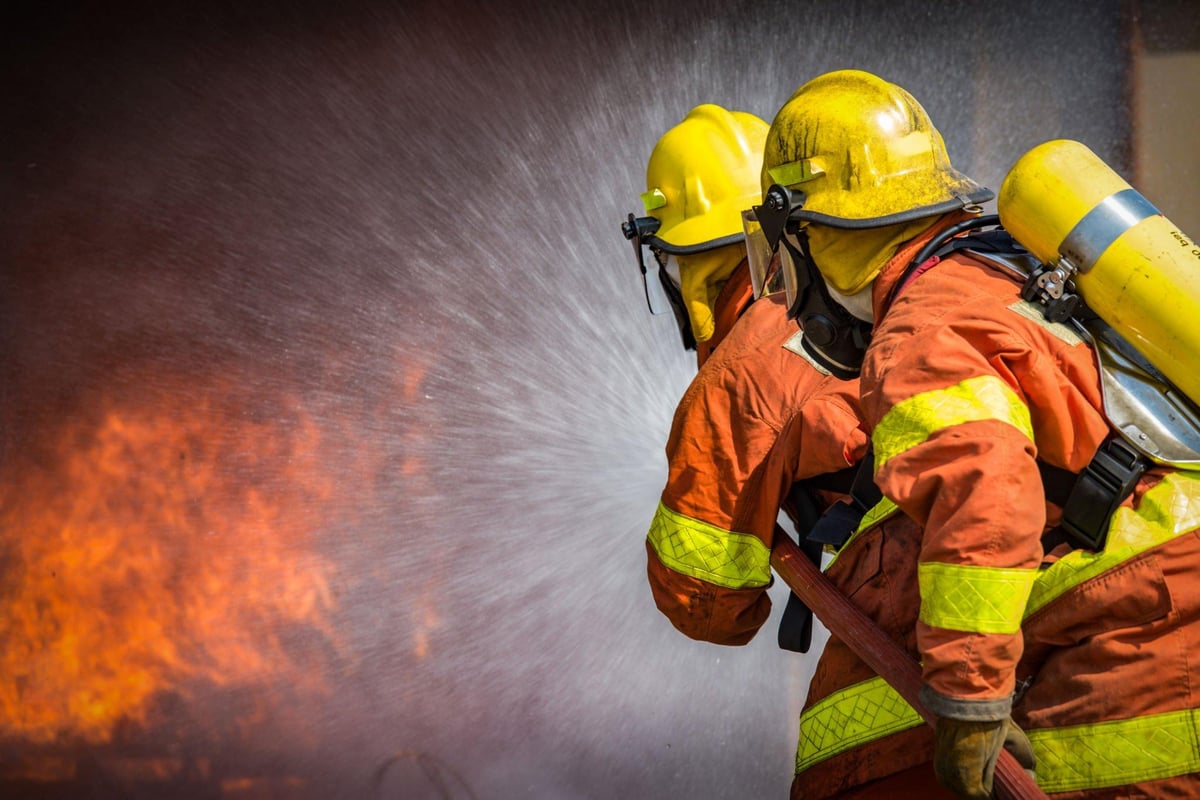Fire Science classes near me in Cincinnati
In the Cincinnati metro area, the average cost of a class is $10000 and the average class length is approximately 50 weeks long
Trade and industry classes near
Cincinnati, OH 45202Online classes
Financial aid
Certificate
Short classes

Liberty University Online
BS: Civil Engineering
- Online, completion in as little as 42 months.
- Option to transfer credits for up to 75% of the entire degree.

Liberty University Online
BS: Aviation Management
- Online, completion in as little as 42 months.
- Option to transfer credits for up to 75% of the entire degree.

Penn Foster
Diesel Mechanics/ Heavy Truck Maintenance Career Diploma
- Affordable, accredited, self-paced
- Students receive Snap-on tools discount
Fire Science classes near me in Cincinnati
Are you interested in a career in firefighting? If you live in Cincinnati, you're in luck! There are several fire science classes available near you that can help you get started on the path to becoming a firefighter. In this blog post, we'll explore what fire science is, the training requirements, what to look for in a class, what to expect from the day-to-day class, the certification process, how to find related jobs, and other classes you can take after becoming a fire science professional. So, let's dive in!

Introduction
Fire science is the study of fire behavior, prevention, and suppression techniques. It covers a wide range of topics, including fire investigation, hazardous materials handling, emergency medical services, and building codes. Fire science classes provide students with the knowledge and skills necessary to handle various emergency situations and become effective firefighters.
What is Fire Science?
Fire science is a multidisciplinary field that combines elements of chemistry, physics, engineering, and management to understand fire behavior and develop effective strategies for fire prevention and suppression. It involves studying the science behind fire, as well as the techniques and equipment used to fight fires safely and efficiently.
Training Requirements
To become a firefighter, you'll need to complete a training program in fire science. The specific requirements may vary depending on the state or organization you plan to work for, but most programs include both classroom instruction and hands-on training. Some of the common topics covered in fire science classes include:
- Fire behavior and chemistry
- Fire prevention and investigation
- Hazardous materials handling
- Emergency medical services
- Building codes and regulations
- Firefighting tactics and strategies
What to Look for in a Class
When choosing a fire science class, it's important to consider a few key factors:
-
Accreditation: Ensure that the class is offered by an accredited institution or training center. This ensures that the program meets certain standards of quality and will be recognized by employers.
-
Experienced instructors: Look for classes taught by instructors with real-world experience in the field of firefighting. They can provide valuable insights and practical knowledge that will enhance your learning experience.
-
Hands-on training: Practical, hands-on training is essential for developing the skills necessary to become a successful firefighter. Look for classes that offer opportunities for hands-on practice with firefighting equipment and techniques.
-
Networking opportunities: Firefighting is a team-oriented profession, so it's important to build connections with other professionals in the field. Look for classes that provide networking opportunities, such as guest speakers from local fire departments or field trips to fire stations.
What to Expect from the Day-to-Day Class
Fire science classes typically involve a combination of classroom lectures, practical exercises, and hands-on training. You can expect to learn about fire behavior, prevention strategies, firefighting techniques, and emergency medical services. Some classes may also include simulations or mock drills to give you a taste of real-world firefighting scenarios.
Certification Process
After completing a fire science class, you'll need to obtain certification to work as a firefighter. The specific requirements for certification may vary depending on the state or organization you plan to work for, but most require passing a written exam and a physical fitness test. Some states also require candidates to complete a certain number of hours of on-the-job training or obtain additional certifications, such as Emergency Medical Technician (EMT) or Hazardous Materials (Hazmat) handling.
How to Find Related Jobs
Once you've completed your fire science training and obtained certification, you'll be ready to start looking for firefighting jobs. Here are a few resources to help you in your job search:
-
Local fire departments: Contact your local fire departments to inquire about any job openings or recruitment processes. Many fire departments have their own websites where they post job listings and provide information about the application process.
-
Job search websites: Check popular job search websites, such as Indeed or Monster, for firefighting job listings in your area. You can use keywords like "firefighter," "fire science," or "fire department" to narrow down your search.
Other Classes to Consider
Once you've become a fire science professional, there are several other classes you can consider taking to further expand your knowledge and skills. Some of these classes include:
-
Emergency Medical Technician (EMT): This class will provide you with the skills necessary to provide emergency medical care in various situations. It's a valuable addition to your firefighting training and can open up additional career opportunities in the field of emergency medical services.
-
Hazardous Materials (Hazmat) handling: This class focuses on the safe handling, storage, and disposal of hazardous materials. It's a critical skill for firefighters, as they often encounter hazardous substances in emergency situations.
-
Leadership and management: As you progress in your firefighting career, you may be interested in taking classes in leadership and management to develop your skills in leading teams and managing emergency situations.
Final Thoughts
If you're passionate about helping others and are interested in a career in firefighting, pursuing fire science classes is a great first step. These classes will provide you with the necessary knowledge and skills to become an effective firefighter and make a positive impact in your community. Remember to do your research, choose a reputable class, and obtain the necessary certifications to increase your chances of success. And don't forget to visit Dreambound for more vocational training options and job opportunities. Good luck on your firefighting journey!
Dreambound has an extensive collection of guides that dive deep into how to get started in the field, tailored for various cities. For those based in different locations or planning to move, we recommend exploring our other guides.
- How to Become a Firefighter in Colorado
- How to Become a Firefighter in Illinois
- How to Become a Firefighter in Nevada
- How to Become a Firefighter in New York
- How to Become a Firefighter in Texas
Pondering a shift in your career path or exploring different professional avenues? Dreambound has created detailed guides to support you in making informed decisions:
FAQ
What is Dreambound?
Dreambound is the largest platform for students to find career & technical training programs. While we can't guarantee a career outcome, our mission is to provide all the information you need to find the perfect program for you.
What programs do you offer?
Dreambound has over 70 programs across healthcare, technology, business, and industrial trades. This includes programs such as Medical Billing, Cybersecurity, and welding.
Do you offer financial aid?
Some of our schools offer financial aid for those who qualify. Many others offer payment plans, where you can pay the cost of class over time.
Is it possible to do online classes?
Yes, Dreambound offers many online programs. On Dreambound's search, you can filter by online, in-person, and hybrid (part online, part in-person).
